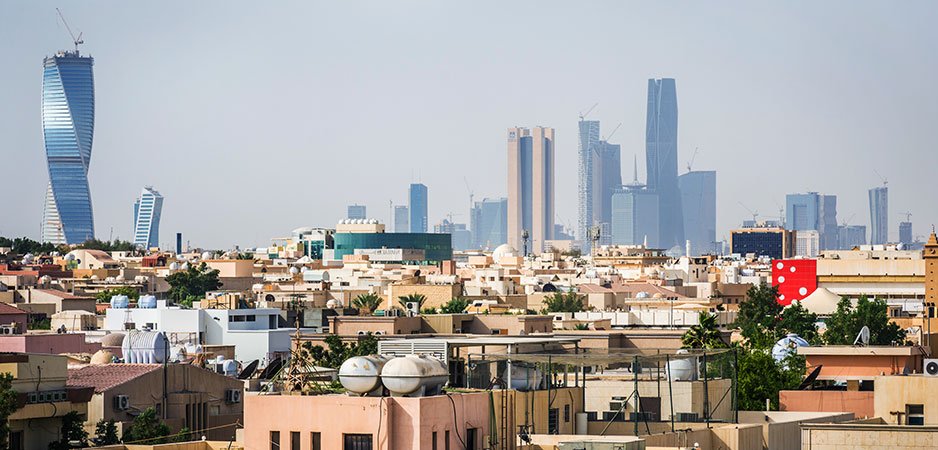While Saudi Arabia powers forward on mega projects favored by Crown Prince Mohammed bin Salman, the push to build more than 1 million affordable homes for the kingdom has had its struggles. The housing minister, Majid al-Hogail, outlined some of the difficulties in an interview in 2017, speaking of “fundamental inefficiencies that have existed in the market historically, including low levels of private sector contribution to supply and a high reliance on government funding.”
The minister was referring to how the private sector has veered away from the affordable housing market, preferring to build for the upper middle classes and rich elites. He was also obliquely referencing the no-interest house purchase loans the kingdom used to dole out but has striven to eschew since embarking on Vision 2030, the grand reform of the Saudi economy launched by Mohammed bin Salman in 2016. Housing was one of Vision 2030’s 13 so-called Vision Realization Programs. Among its goals are “increasing the supply of houses at reasonable prices within a fast time frame.” Another is “securing housing for the underprivileged segment of society.”
Some Progress
More than three years on, some progress has been made. The housing ministry says that it has exceeded its 2019 targets of providing the kingdom’s citizens with home ownership support through its Sakani housing program. Among the statistics cited for the Sakani initiative was the claim that “300,041 families (benefited) in all regions of the kingdom.”
Under the auspices of the Real Estate Development Fund (REDF), reforms were launched in 2018 designed to stimulate the mortgage market. They include dropping the down payment from 10% to 5% and increasing the banks’ maximum loan-to-value ratio for mortgages of first-time homebuyers from 85% to 90%. The REDF also initiated a program of subsidized support for those low to middle-income wage earners already holding mortgages.
Nonetheless, as ordinary Saudis see the emphasis the crown prince has put on building NEOM, his $500-billion AI-powered city of the future, Qiddiya, an entertainment city north of Riyadh, and the Red Sea Resort designed for the ultra wealthy, they can be forgiven for feeling that even with the reforms, affordable housing remains a promise yet to be fulfilled by the government.
It is worth noting that at a recent Financial Sector Conference, the housing minister was billed as “a Founding Member, and active Director of the Board, of numerous Giga-Projects in the Kingdom; including NEOM, the World’s most ambitious project and Qiddiya Investment Company, Saudi’s pre-eminent entertainment, sports and cultural destination.”
Although the Housing Vision Realization Program calls for the Saudi private sector and the local home construction industry to build affordable homes, the government has chosen to do business with an American firm Katerra, based in Silicon Valley. In October 2018, it signed a massive but non-binding $40-billion deal that would see Katerra provide hundreds of thousands of pre-fabricated affordable units to the kingdom. As part of that larger deal, Katerra confirmed earlier this month that it has entered into a $650-million contract to build 8,000 homes across the kingdom.
Curious Connections
It may seem a trifle curious that after committing to use the private sector in Saudi Arabia to build affordable housing, a significant contract was subsequently signed with an American company. But Katerra is backed by Softbank, and Softbank — via its founder Masayoshi Son — is deeply connected to Mohammed bin Salman. In September 2016, after a short meeting with Son, MBS, as he is known, agreed to stump up $45 billion from the kingdom’s Public Investment Fund into the Japanese financier’s $100-billion Vision Fund.
A year later, Son was asked by Bloomberg if he got the money from MBS in one hour. To which the answer was, “No, that’s not true. I got $45 billion in 45 minutes, that’s $1 billion per minute.”
Katerra is the sort of endeavor Son likes to back with massive infusions of cash — in this case $1 billion — to help start-up companies grow very fast using technology as the ramp to drive up their valuation and secure quick returns. The problem is that these companies can grow too fast, with outsized promises to match the outsized egos of their founders. So it has proved with Katerra.
As a New York real estate news website The Real Deal (TRD) notes, “the Silicon Valley company’s rise follows a similar narrative to that of other SoftBank-backed startups, including WeWork, Compass and Uber: break down the walls of an industry, grow at all costs and figure out the metrics later.” As for the link between Son, Katerra and the Saudis, Softbank told TRD that it helps its “portfolio companies navigate entrance to new and promising markets, such as Katerra’s work for Saudi Arabia.”
Saudi Unemployment Statistics Spell a Troubled Vision 2030
The Real Deal investigation uncovered a string of abandoned projects, an abruptly closed factory and hundreds of laid off workers in the United States, as well as corporate shenanigans, all of which raise serious questions about how Katerra is run. Yet this is the company charged with being a leading player in solving Saudi Arabia’s affordable housing crisis. Katerra has made big promises to the kingdom, among them that it will build 10 to 15 houses a day by the third quarter of 2020. That seems an extravagant claim, given the company’s track record in America.
Securing affordable housing for young Saudis will go a long way to securing Mohammed bin Salman’s position. If he delivers on that front, questions about the tight links between Katerra, Son and the Public Investment Fund the crown prince controls will probably go away. But if Katerra flops, those links may come back to trouble MBS.
*[This article was originally published by Arab Digest.]
The views expressed in this article are the author’s own and do not necessarily reflect Fair Observer’s editorial policy.
Support Fair Observer
We rely on your support for our independence, diversity and quality.
For more than 10 years, Fair Observer has been free, fair and independent. No billionaire owns us, no advertisers control us. We are a reader-supported nonprofit. Unlike many other publications, we keep our content free for readers regardless of where they live or whether they can afford to pay. We have no paywalls and no ads.
In the post-truth era of fake news, echo chambers and filter bubbles, we publish a plurality of perspectives from around the world. Anyone can publish with us, but everyone goes through a rigorous editorial process. So, you get fact-checked, well-reasoned content instead of noise.
We publish 2,500+ voices from 90+ countries. We also conduct education and training programs
on subjects ranging from digital media and journalism to writing and critical thinking. This
doesn’t come cheap. Servers, editors, trainers and web developers cost
money.
Please consider supporting us on a regular basis as a recurring donor or a
sustaining member.
Will you support FO’s journalism?
We rely on your support for our independence, diversity and quality.






